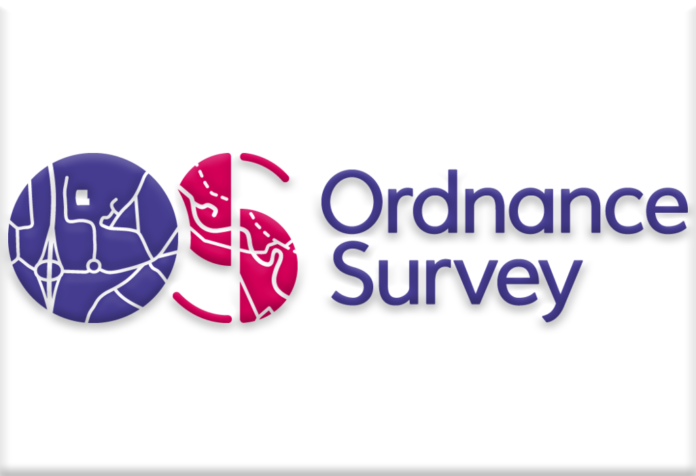Leading organisations Ordnance Survey (OS), the International Growth Centre (IGC) and the Commonwealth Association of Architects (CAA) are responding to the challenges associated with urban growth, and the availability of accurate and up-to-date data for creating well-planned and managed cities, by piloting the creation of an automated digital base map of Lusaka, Zambia.
The Ministry of Local Government is undertaking efforts to promote prosperous and inclusive urban settlements, and ensure Zambia’s towns and cities are resilient to support economic growth. The ongoing COVID-19 pandemic has further highlighted the need for a better understanding of the city’s informal settlements.
Using aerial imagery provided by the Zambia Survey Department in the Ministry of Lands and Natural Resources, OS has utilised its advanced automated process to generate a new base map using artificial intelligence across 420km2 of Lusaka.
This innovative technique is a rapid, accurate and cost-effective way to generate a detailed digital map that has a multitude of use cases, including the design and management of critical infrastructure services, land use planning, transport planning, land tenure, ownership and administration together with the integration of future census data. Computers are taught what to look for in images using training data; the technology then automatically creates mapping quickly and accurately.
The world is rapidly urbanising with over 55% of the global population now living in urban areas and by 2050, it is projected to expand by an additional 2.5 billion urban dwellers. Sub-Saharan Africa in particular, is urbanising twice as fast as Europe with urban populations expected to triple by 2050.
The World Bank estimate that 54% of Sub Saharan African urban dwellers are living in informal settlements and between 50% and 80% rely on informal jobs. These dwellings are overcrowded, often polluted, with inadequate housing, and limited access to water and sanitation facilities. Furthermore, these informal sites lack the infrastructure required to support sustainable, liveable, and productive urban environments.
OS mapping data will help identify informal settlements, population and density, the number of built structures, the location of transport infrastructure surrounding the formal and informal neighbourhoods, as well as access to electricity, sanitation facilities and clean water. A sister project, led by Patrick Lamson-Hall of New York University’s Marron Institute, is contributing to this analysis by creating a typology of the various informal settlements and tracking their expansion over time.
Together this will enable the Ministry to better target investment in critical infrastructure and services, upgrading informal settlements to provide for the most vulnerable residents. It will also assist in better planning for urban expansion, which reduces the overall cost of infrastructure investment, limits informality, and enables more resilient and sustainable urban futures.
By 2025, roughly 440 cities in emerging economies will contribute to nearly half of global economic growth. Sprawling urban areas limit access to job opportunities and social and commercial services while also being disconnected. If well-managed and planned, urbanisation in rapidly developing cities can be transformative, creating jobs, reducing poverty, and improving residents’ quality of life with better access to healthcare and cleaner water.
With two-thirds of African cities yet to be built, and retro-fitting infrastructure being three times more expensive, sustainable urbanisation is one of the solutions to our ever-growing global population and can increase prosperity, while alleviating high levels of urban poverty.
Andy Wilson, Africa Region Director, OS said: “This programme will promote the value associated with accurate and relevant spatial data. The rapid delivery of a scalable and replicable national digital base map is not only relevant to cities such as Lusaka, but also has far reaching benefits at national and regional scale. OS data will provide the evidence and information to support critical decisions when upgrading existing informal settlements and planning future infrastructure to promote economic prosperity.”
Victoria Delbridge, Head of Cities that Work, International Growth Centre said: “Zambia’s policymakers need up-to-date evidence and tools to make critical decisions on urban investments. The base map created through this collaboration opens up a wealth of opportunities to better target and deliver the infrastructure and services that citizens need to prosper in cities, particularly the most vulnerable residents in informal settlements who are often absent from formal data sources.”
Peter Oborn, Senior Vice President, Commonwealth Association of Architects said: “Rapid urbanisation and unplanned settlements present an increasingly serious challenge in terms of social, economic and environmental well-being. The provision of accurate digital base maps creates a vitally important resource for use by policy makers and planners in the development of evidence-based solutions that will help deliver greater impact and at speed.”
Joseph Minango, Surveyor General, Zambia Ministry of Lands said: “The Zambian Ministry of Lands is pleased to be supporting the creation of detailed mapping of Lusaka to deliver better outcomes for informal settlements and other critical uses including land auditing and titling and effective land management.”



